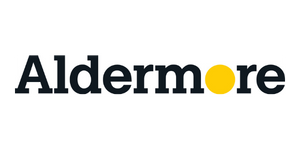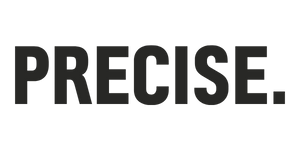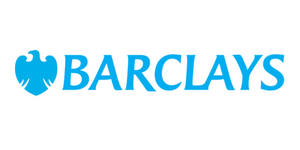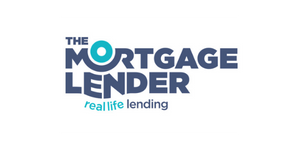Can I get a mortgage as a contractor?
Getting a mortgage as a contractor is possible. However, it is worth remembering that not all lenders are the same. Most lenders will take different positions over who they lend to and what criteria they will use to judge applications. The type of contract you have will also play a part in their decision.
If you are at the beginning of a new contract, it may be possible to satisfy a mortgage lender of your verifiable income if you were working in the same industry previously. Having a track record of experience and consistent levels of income is appealing to lenders.
Whatever your situation, it’s important to talk over your application with a specialist broker. Our advisors will be able to fully explore the contractor mortgages available and make recommendations to you based on your unique circumstances.
How do I get a contractor mortgage?
Contractor mortgages may be more difficult and time-consuming than it would be as a ‘regular employee’. However, don’t let this put you off. Given the right advice and guidance, your application should stand just the same chance of success as one from someone in a conventional salaried situation.
The documentation you’ll need to provide will not be particularly onerous – it is simply a case of verifying your consistent income and showing that it is fair to expect it to be sustainable over an extended period of time.
In order to give your application the best chance of success, proving the following can be highly beneficial:
- The type of contract you have with any regular employers.
- The length of the term remaining on the contract(s) and your past experience.
- How long you have been in your field of work.
- The rates of pay you have been able to command consistently.
- The regular work you can expect – in order to gauge a suitable solution.
Our experience has shown us that everybody’s situation is different. Therefore, our specialist advisors will be able to review all your circumstances and requirements in order to match you with the right kinds of lenders that offer contractor mortgages.
Contractor mortgage lenders
The mortgage market is constantly evolving, with lending criteria, internal policies, interest rates and terms all subject to change according to shifting trends in demand. Contractor mortgages are designed to meet your specific needs as a contractor, most especially the nuances around your pay.
If your pay is usually based on a daily or weekly rate, then you’re probably not able to give a figure for an annual salary. It can also be difficult to provide two or three years’ worth of accounts that typical mortgage providers like to see.
To address this, specialist mortgages for contractors have been set up so that you can borrow money based purely on your contract rate. When assessing your affordability for these products lenders will give far more weight to your current status and ongoing agreements, rather than your past history.
If you also have a clean credit record, then you should be able to borrow at the same rate of interest as a conventionally salaried employee.
There is no specific requirement for a minimum deposit, although usually a minimum of 5% deposit is sufficient. As with any other type of mortgage, the amount of deposit will directly reflect in the interest rates available. A larger deposit will normally produce a lower rate of interest and repayments. However, this will be dependent on your income being adequate to support a mortgage for the balance of the purchase price.
As a contractor on a daily rate, a typical calculation is to multiply your current contract day rate by the number of days worked each week. This is then multiplied by 48 weeks to give an annual income figure to be used for a mortgage calculation.
Different lenders may use a different number of weeks to calculate the overall income, but once the figure is established, you could potentially borrow 5 times your yearly income.
For example, a contractor’s daily rate of £500 x 5 working days a week x 48 weeks gives you £120,000. Then if you can borrow the maximum, which is 5 times your income, this leaves you with a borrowing amount of £600,000.
It is vital that your individual circumstances and requirements are matched to a suitable lender and a discussion with one of our experts will save time.
Interest rates fluctuate on a daily basis; therefore it would be impossible for us to provide exact rates here. The truth of the matter is that you should never judge a mortgage product on its headline interest rate alone. This is because there are so many other variables that might make it not the most financially favourable to you over the course of the loan.
The ‘best’ mortgage rate that you will find will be the one associated with the mortgage that is most suitable to your circumstances. Although, we cannot list specific rates, we can say that the interest contractors pay on a mortgage should be very similar to that which a person in conventional employment would pay.
Furthermore, we often see contractors being able to save up a larger deposit than a normal employee. Invariably, having a larger deposit will enable access to lower interest rates, therefore reducing the cost of the loan overall.
You’ll also be pleased to know that there are no limitations on the type of mortgage contractors can apply for. You should be able to consider a range of products with fixed, variable and tracker rates.
Who can get a contractor mortgage?
There are some criteria to fulfil if you’re looking to get a contractor mortgage. On a basic level you’ll find that these kinds of mortgages are typically designed for people in two types of circumstances:
- Anyone who is employed on a fixed-term or short-term contract basis. These could be outside consultants, people standing in for other workers away on leave, event technicians or other transitional positions where a company or people will need external help for a specified period of time.
- People who are self-employed but working through one company. These are usually tradespeople or industry specialists (for example, IT engineers, electricians, carpenters, plumbers, etc). Although in more recent times, their self-employed status may be brought into question for tax purposes under the IR35 legislation, depending on the level of supervision and control over their workplace.
If you’re contracted for work through an agency, then you’ll need to provide extra documents in addition to your regular payslips and end of year tax calculation. This will usually be a copy of your current contract, and also as much evidence as you can of your track record in the same line of work. This will usually need to be 12 months of working history to show continuity of income, expected levels of pay, and the demand for your skills.
This can make it a challenge for agency workers or temporary contractors to get a mortgage through conventional channels. Most mainstream high street banks are particularly risk-averse, so you will likely need to deal with a specialist mortgage lender.
IT contractors are actually in a reasonably strong position. As highly trained professionals with expert specialist knowledge, their skills are very much in demand in a world that has been transformed by digital technology.
This means IT contractors are now rarely without work and can command quite lucrative daily rates. Therefore, for a professional, reliable IT contractor, proving your income and long-term suitability for a mortgage shouldn’t be overly difficult.
Lenders’ application requirements for IT contractors are no different for those of any other type of contractor. This includes proving your income, any documentation you need to support your application, and deposit requirements.
If you’re an IT contractor looking to obtain a mortgage, reach out today. Our team of expert advisors are on hand to discuss your needs.
If you are on a fixed term contract you will be seen as a PAYE, even though you are contracted. Usually, lenders will want to see a consistent history of contracts as well as a longer contract term. This will give the lender added security when lending to you as they will be more confident in you having consistent income.
Umbrella company workers usually face the same processes and requirements as any other contractor looking for a mortgage. Lenders will like a minimum of 6- to 12-months working history. This will show that you are consistently able to receive income.
Specialist lenders are usually a better choice than your typical high street lenders, as they have products designed for these employment scenarios. If you’re unsure about your options why not reach out today.
It is usual for lenders to expect evidence of a 12-month track record. However, depending on individual circumstances and an overview of the whole lending proposition, it may be possible to use this type of income when it can be proved for less than a year.
Not all lenders offer CIS scheme mortgages, and those that do may have different lending criteria. Typically, CIS scheme mortgages allow subcontractors to prove income using the gross amount shown on the payslips they receive from contractors. This is rather than having to provide business accounts or a SA302, which shows the year-end tax calculation from a Self-Assessment tax return. This can be advantageous for applicants with less than two years’ worth of accounts to show.
Rather than a “one-size-fits-all” assessment criteria, CIS lenders generally assess applicants on a case-by-case basis. Having said that, there are broad criteria that will need to be met.
Generally, to qualify for a CIS scheme mortgage you can expect to be asked to provide your CIS payslips for at least the last three months. Although, up to six or more may be required in some circumstances. They will be used to calculate an average monthly income, from which an annual income figure will be worked out. You may generally also need to provide bank account statements for the same period of time.
I have just started contracting – can I get a mortgage?
Yes, we have helped many people who have just started contracting to get the mortgage they need. Much will depend on the type of work you carry out, with some trades known to be consistently in demand. Some examples include IT specialists, digital engineers, electricians, plumbers, and retail outfitters.
By demonstrating that your field of expertise can generate income consistently, you may be able to get a mortgage without a particular track record. Although, the majority of lenders do expect to see at least six months of regular employment to prove that you are established.
This said, the more evidence of long-term sustainability, and the demand for your skills, the better. It may be necessary to show a history of similar employment in your line of work to support your case, as this will provide lenders with additional security.
The best thing to do is to discuss your situation with us. Once we have an overview of your situation, we will be able to let you know if it will be possible for you to get a mortgage. Or we can advise you if we think you need to build up more of a history of trading.
I am on a short-term contract – can I get a mortgage?
You might think that being only on a short-term contract would jeopardise your chances of getting a mortgage. However, this does not necessarily prevent you from getting the mortgage you need.
Specialist lenders are used to looking at applications from all sorts of potential borrowers. This means you should still be able to obtain a mortgage even though you are on a short-term contract. A lot will depend on the nature of your work, and if you expect to be able to easily line jobs up continuously in the future.
Lenders usually make decisions based on a view of your proven income in order to get an indicative figure for what it will be annually. They will normally look for evidence of a track record of earnings. If you can show a steady history of earnings and employment, with a discernible pattern of predictable income generated by your work, then this will count in your favour.
As is the case with any self-employed potential borrower, a mortgage lender will be looking to see that your income is sustainable. This gives them added security as they know you have a secure source of income to make mortgage payments.
- - Do I need 3 years of accounts to get a contractor mortgage?
- - Can I get a contractor mortgage as a first-time buyer?
- - I am a contractor with bad credit – can I get a mortgage?
- - Can I get a Right to Buy mortgage if I am a contractor?
- - Can I get a Buy-to-Let mortgage if I am a contractor?
- - Can I get a shared ownership mortgage if I am a contractor?


























